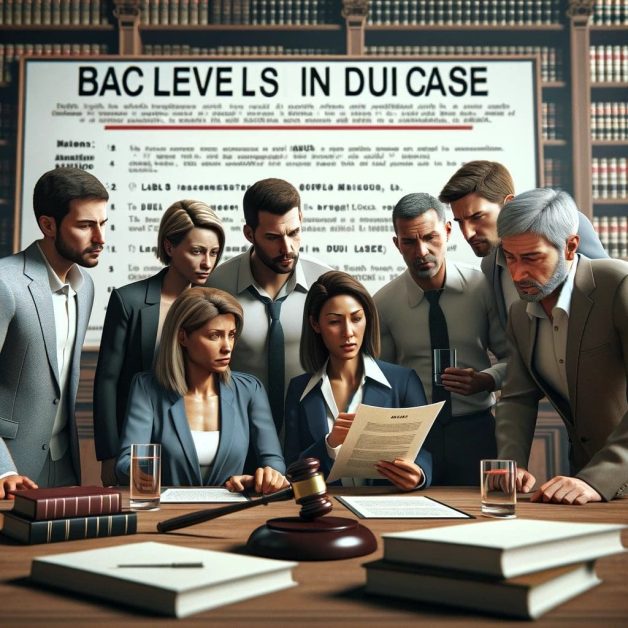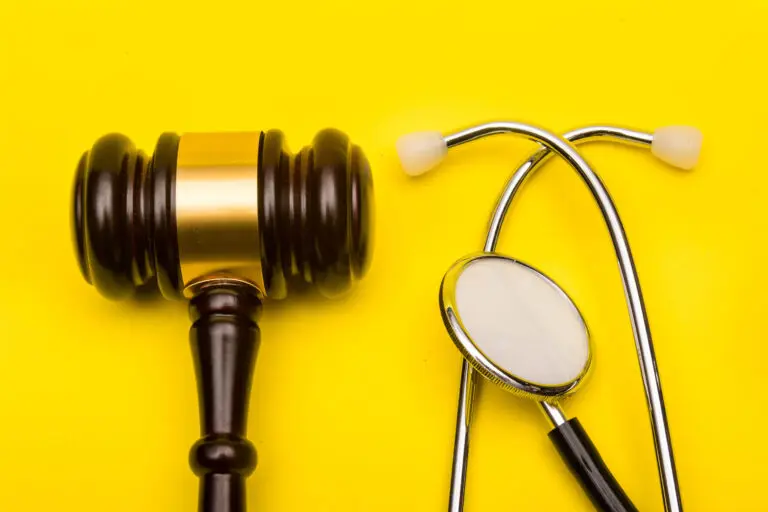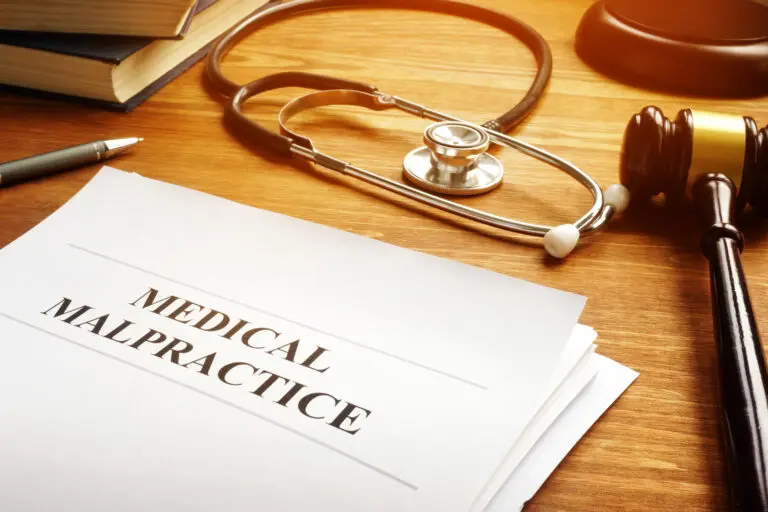Driving Under the Influence (DUI) is a critical issue that poses significant risks not only to the individuals involved but also to public safety. The legal system treats Infracciones de DUI with the seriousness they deserve, implementing a range of penalties and processes designed to deter impaired driving and protect the community. This article aims to explore the intricate landscape of DUI laws, the penalties for violations, the legal processes following a Cargo por DUI, and effective prevention strategies.
Entender las leyes sobre DUI
Leyes sobre conducción bajo los efectos del alcohol across the United States share a common goal: to prevent impaired driving and ensure the safety of all road users. However, the specifics of these laws can vary significantly from one jurisdiction to another. Generally, a person is considered to be driving under the influence if they operate a vehicle with a blood alcohol concentration (BAC) of 0.08% or higher. For commercial drivers, the threshold is even lower, typically set at 0.04%. Minors may face DUI charges under zero-tolerance laws for any detectable level of alcohol.
Legal Limits and Variations
In addition to the standard BAC limits, some states have stricter laws for certain circumstances. For example, Utah has a legal limit of 0.05%, the lowest in the United States. Some states also have “per se” laws, meaning that having a BAC above the legal limit is an offense in itself, regardless of whether the driver shows signs of impairment.
Sanciones por infracciones de DUI
En penalties for DUI offenses are multifaceted and designed to reflect the severity of the crime. First-time offenders can expect fines, potential jail time, driver’s license suspension, and mandatory participation in alcohol education or treatment programs. For repeat offenders or cases involving aggravating factors—such as causing injury or death, having a significantly high BAC, or driving with minors in the vehicle—the penalties are more severe, including longer jail sentences, higher fines, and extended license suspensions.
- First-Time Offenders: A first-time DUI offense typically results in a combination of penalties, including fines ranging from $500 to $2,000, jail time up to six months, and license suspension for up to a year. Offenders may also be required to attend DUI school or an alcohol education program.
- Repeat Offenders: Individuals with prior DUI convictions face harsher penalties, which may include fines up to $10,000, jail sentences up to five years, and prolonged license suspensions. Repeat offenders are often required to install an ignition interlock device (IID) in their vehicles.
- Aggravating Factors: Aggravating circumstances, such as high BAC levels, accidents causing injury or death, and the presence of minors in the vehicle, result in enhanced penalties. These can include mandatory minimum jail sentences, longer license suspensions, and substantial fines.
El proceso legal después de un cargo de DUI
After a DUI arrest, the accused faces a complex legal process, beginning with arraignment and potentially culminating in a trial. Throughout this process, individuals have the right to legal representation, which is crucial for navigating the nuances of DUI law and advocating for the fairest possible outcome.
- Comparecencia: The first court appearance where the defendant is formally charged with DUI. During the arraignment, the defendant enters a plea of guilty, not guilty, or no contest.
- Pre-Trial Motions: Both the defense and prosecution may file pre-trial motions, which could include motions to suppress evidence, dismiss charges, or request specific legal rulings.
- Ensayo: If the case proceeds to trial, both sides present their evidence and arguments. The defense may challenge the accuracy of BAC testing equipment, the legality of the traffic stop, or the procedures followed during the arrest.
- Sentencia: If found guilty, the defendant is sentenced according to the severity of the offense and any aggravating factors present.
Estrategias de prevención
Preventing DUIs requires a comprehensive approach that combines legal deterrence with public education and support for individuals struggling with substance abuse. Awareness campaigns play a crucial role in highlighting the dangers of impaired driving, while law enforcement initiatives like sobriety checkpoints aim to catch offenders before they cause harm.
- Public Awareness Campaigns: These campaigns use various media platforms to educate the public about the dangers of DUI. They often feature real-life stories and statistics to emphasize the severe consequences of impaired driving.
- Sobriety Checkpoints: Law enforcement agencies set up checkpoints at strategic locations to identify and apprehend impaired drivers. These checkpoints serve as both a deterrent and a means of catching offenders.
- Substance Abuse Treatment: Providing access to treatment programs for individuals with alcohol or drug dependency can help address the root causes of impaired driving. Treatment programs aim to reduce recidivism and promote long-term recovery.
- Alternative Transportation Options: Encouraging the use of taxis, ridesharing services, and public transportation can reduce the incidence of DUI by providing safe alternatives to driving after consuming alcohol.
El papel de la tecnología en el control de la conducción bajo los efectos del alcohol
Los avances tecnológicos han introducido nuevas herramientas para combatir la conducción bajo los efectos del alcohol, desde dispositivos de bloqueo del encendido que impiden a las personas con discapacidades arrancar sus vehículos hasta aplicaciones móviles que calculan los niveles de alcoholemia y ofrecen alternativas a la conducción. Las fuerzas del orden también utilizan métodos sofisticados para detectar la conducción bajo los efectos de las drogas, incluidos expertos en reconocimiento de drogas entrenados para identificar signos de consumo de drogas.
- Ignition Interlock Devices (IIDs): These devices require drivers to pass a breathalyzer test before starting their vehicle. IIDs are commonly mandated for repeat offenders and those with high BAC levels.
- Mobile Apps: Various apps are available that help individuals estimate their BAC levels and find alternative transportation options. These apps promote responsible drinking and prevent impaired driving.
- Drug Recognition Experts (DREs): DREs are specially trained officers who can identify impairment caused by drugs other than alcohol. Their expertise is crucial in detecting and prosecuting drug-related DUIs.
Reformas jurídicas y orientaciones futuras
The legal landscape of DUI is continually evolving, with recent reforms focusing on enhancing penalties, expanding the use of ignition interlock devices, and lowering legal BAC limits. These changes reflect a growing recognition of the need for stricter measures to combat impaired driving.
- Enhanced Penalties: Recent legal reforms have increased the severity of penalties for DUI offenses, particularly for repeat offenders and those with high BAC levels.
- Expansion of IIDs: Many states have expanded the use of IIDs to include first-time offenders and those with lower BAC levels as a preventive measure.
- Lower BAC Limits: Some jurisdictions are considering lowering the legal BAC limit from 0.08% to 0.05% to reduce impaired driving incidents.
Repercusiones de la conducción bajo los efectos del alcohol en la sociedad
The societal impact of Infracciones de DUI extends far beyond the legal consequences faced by offenders. Communities bear the brunt of impaired driving through the loss of life, significant injuries, and the economic costs associated with accidents. The National Highway Traffic Safety Administration (NHTSA) estimates that the annual cost of alcohol-related crashes totals more than $44 billion. These staggering figures highlight the necessity for stringent Leyes sobre conducción bajo los efectos del alcohol and effective prevention strategies to safeguard public well-being.
Leyes y variaciones de DUI específicas de cada Estado
Mientras que los principios generales de las leyes de DUI son consistentes a través de los Estados Unidos, las regulaciones y penas específicas pueden variar significativamente de un estado a otro. Algunos estados han implantado leyes per se, por las que es ilegal conducir con una tasa de alcoholemia igual o superior a 0,08%, independientemente de la deficiencia real. Otros utilizan un enfoque escalonado de las sanciones, en el que la gravedad del castigo aumenta con el nivel de alcoholemia o el número de infracciones anteriores. Entender los matices de las leyes específicas de cada estado es crucial para los residentes y los que viajan a través de las fronteras estatales.
- Per Se Laws: These laws make it illegal to drive with a BAC above a specified limit, regardless of the driver’s actual impairment. This simplifies enforcement and prosecution by focusing on the BAC level alone.
- Zero Tolerance Laws: Many states have zero tolerance laws for drivers under the legal drinking age, making it illegal for these individuals to drive with any detectable level of alcohol in their system.
- Implied Consent Laws: These laws stipulate that by driving on public roads, drivers implicitly consent to submit to BAC testing if suspected of DUI. Refusing a test can result in immediate license suspension and other penalties.
Alternativas y apoyo a los delincuentes
Recognizing that many DUI offenders struggle with alcohol dependency or substance abuse issues, several states have adopted alternative sentencing programs aimed at rehabilitation rather than punishment alone. These may include court-ordered participation in alcohol treatment or education programs, community service, and the use of ignition interlock devices (IIDs) to monitor compliance. By addressing the root causes of impaired driving, these programs seek to reduce recidivism and promote long-term behavioral change.
- Alcohol Treatment Programs: Offenders may be required to participate in alcohol treatment programs that provide counseling, education, and support to address alcohol dependency issues.
- DUI Courts: Specialized DUI courts focus on rehabilitation rather than punishment, offering offenders the opportunity to complete treatment programs in exchange for reduced sentences.
- Servicio comunitario: Offenders may be required to complete a certain number of community service hours as part of their sentence, contributing positively to society while paying their debt for the offense.
Desafíos en la aplicación y resolución de la DUI
La aplicación de las leyes de DUI presenta desafíos únicos, desde la detección de la deficiencia hasta la garantía de procesos legales justos para las personas acusadas. Los funcionarios encargados de hacer cumplir la ley se basan en pruebas de sobriedad y alcoholímetros para evaluar la deficiencia en las paradas de tráfico, pero estos métodos no son infalibles. A menudo surgen problemas legales en relación con la exactitud de los resultados de los controles de alcoholemia y la constitucionalidad de las identificaciones y los controles de tráfico. El sistema jurídico debe equilibrar la necesidad de seguridad pública con la protección de los derechos individuales, una tarea que requiere una evaluación y un ajuste constantes de las prácticas de aplicación de la ley en materia de conducción bajo los efectos del alcohol.
- Accuracy of BAC Testing: Breathalyzers and blood tests are commonly used to measure BAC, but these tests can be challenged in court due to potential errors in calibration, administration, or environmental factors.
- Constitutional Challenges: Defendants may argue that their Fourth Amendment rights were violated if a traffic stop or checkpoint was conducted without reasonable suspicion or probable cause.
- Pruebas de sobriedad sobre el terreno: These tests, which assess a driver’s physical and cognitive abilities, can be subjective and influenced by factors unrelated to alcohol impairment, such as medical conditions or nervousness.
El futuro de la prevención de la conducción bajo los efectos del alcohol
Las innovaciones tecnológicas y políticas son prometedoras para el futuro de la prevención de la conducción bajo los efectos del alcohol. Las tecnologías de vehículos autónomos, que potencialmente podrían eliminar el error humano y la deficiencia como factores en la conducción, representan una solución a largo plazo. A más corto plazo, la expansión de las opciones de transporte público y los servicios de viajes compartidos ofrecen alternativas prácticas a la conducción bajo los efectos del alcohol. Las campañas de salud pública siguen evolucionando, utilizando las redes sociales y otras plataformas digitales para llegar a un público más amplio con mensajes sobre los peligros de la conducción bajo los efectos del alcohol.
- Autonomous Vehicles: Self-driving cars could eventually remove the human element from driving, effectively eliminating DUI incidents. While this technology is still developing, it holds significant promise for the future.
- Ridesharing Services: Companies like Uber and Lyft provide convenient alternatives to driving after drinking, helping to reduce the number of impaired drivers on the road.
- Transporte público: Expanding and improving public transportation options can offer safe alternatives to driving, especially in urban areas where these services are more accessible.
Conclusión
Las infracciones por conducir bajo los efectos del alcohol suponen riesgos importantes para las personas y las comunidades, por lo que es necesario un enfoque polifacético de la aplicación de la ley, la resolución judicial y la prevención. A medida que progrese la sociedad, la integración de los avances tecnológicos, las reformas políticas y las iniciativas educativas será fundamental para reducir la incidencia de la conducción bajo los efectos del alcohol. Mediante el esfuerzo colectivo y el diálogo permanente, podemos trabajar por un futuro en el que las carreteras sean más seguras para todos, libres de la lacra de los accidentes y muertes relacionados con la conducción bajo los efectos del alcohol.
By understanding the complexities of DUI laws, recognizing the severe penalties associated with violations, and actively participating in prevention strategies, individuals can contribute to a safer, healthier community. As legal frameworks adapt and new technologies emerge, the fight against DUI continues, with the ultimate goal of eliminating impaired driving and protecting lives.
Type of Attorney for DUI Cases and How to Find Them on Attorneys.Media
DUI Defense Attorneys: Specialists in Navigating DUI Charges
DUI defense attorneys specialize in representing individuals charged with driving under the influence. These legal professionals are well-versed in the complexities of Ley de DUI, including the nuances of state-specific regulations, the science behind BAC testing, and the procedural aspects of DUI cases. Their primary role is to defend their clients against DUI charges, striving to achieve the best possible outcomes, whether that involves negotiating reduced charges, securing acquittals, or minimizing penalties.
Key Responsibilities of DUI Defense Attorneys:
- Legal Representation and Advocacy: DUI attorneys represent clients throughout the legal process, from arraignment to trial. They advocate on behalf of their clients, presenting defenses such as questioning the validity of the BAC test, challenging the legality of the traffic stop, or disputing the arrest procedures.
- Negotiation and Plea Bargains: Experienced DUI lawyers often negotiate with prosecutors to reach plea bargains that might reduce charges or penalties. This can be crucial in cases where the evidence against the defendant is strong.
- Advising on Consequences and Mitigation: DUI attorneys advise clients on the potential consequences of a DUI conviction, including the impact on driving privileges, employment, and personal life. They also help clients explore mitigation strategies, such as participating in alcohol education programs or installing an ignition interlock device, to demonstrate their commitment to rehabilitation.
Finding a DUI Attorney on Attorneys.Media:
To locate a qualified DUI defense attorney using Attorneys.Media, follow these steps:
- Visit the Attorneys.Media Website: Begin by navigating to the Attorneys.Media website, which provides a comprehensive directory of legal professionals across various specializations.
- Utilize the Search Function: Use the search bar to input specific terms such as “DUI defense attorney” or “Abogado de DUI.” This will filter the search results to display attorneys who specialize in DUI cases.
- Browse Relevant Categories: Navigate to the relevant categories such as “Criminal Law” or “DUI Law.” These categories are tailored to help users find attorneys with expertise in defending DUI charges.
- Review Attorney Profiles: Click on individual attorney profiles to review their qualifications, experience, and areas of specialization. Look for attorneys who have significant experience handling DUI cases and a track record of successful defenses.
- Contact Potential Attorneys: Once you identify potential attorneys, contact them to discuss your case. Many attorneys offer free initial consultations, which can provide an opportunity to assess their suitability for your needs and understand their approach to handling DUI charges.
Benefits of Using Attorneys.Media:
Attorneys.Media offers a user-friendly platform that simplifies the process of finding specialized legal representation. By providing detailed profiles and categorizing attorneys based on their areas of expertise, the website ensures that individuals facing DUI charges can quickly and efficiently find the legal support they need. Additionally, the platform includes client reviews and ratings, which can help you make informed decisions when selecting a DUI defense attorney.
In summary, finding the right DUI defense attorney is crucial for effectively navigating DUI charges and achieving favorable outcomes. Attorneys.Media provides a valuable resource for locating experienced attorneys who can offer the necessary legal guidance and representation. By leveraging this platform, individuals can access the expertise required to address DUI charges and protect their rights.
Attorneys.Media Video Document References
- Is Personal Injury Part of Your Law Practice?
- As an Attorney, How Are You Generating Content for Your Online Presence?
- How Can You Help Potential New Clients Get Their Questions Answered?
- How Do You Differentiate Yourself When Someone Looks Online for Help?
- How Do You Differentiate Yourself as a Criminal Defense Attorney?
- Have You Been Thinking About Video Marketing for Your Law Firm?
- Should Attorneys Use Video Marketing to Attract New Clients?
- What Do Potential Clients See When They Research Your Name Online?
- Cómo puede ayudarle Attorneys.Media









